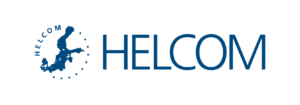An for alien species transfers via the ballast water of commercial ships has been released jointly by and he , which goes live today, was adopted by the coastal countries of the Baltic Sea and North-East Atlantic regions as part of the joint harmonised procedure on granting exemptions from ballast water treatment provisions of the International Convention for the Control and Management of Ships’ Ballast Water and Sediments () of the International Maritime Organisation () Photo: Zane Johnston.The tool comprises a database on observations of alien species and physical features in ports, a list of target alien species, a list of all marine and alien species observed in port surveys in the region and an agreed risk assessment model. his will allow administrations and ship owners to quickly identify routes that may qualify for exemptions to the application of ballast water management for ships (regulation B-3) and those that are unlikely to. ot only will the tool help protect the environment by identifying routes that could present a high risk for the transfer of alien species, it will ultimately save both the shipping industry and maritime authorities time and money by supporting the decision making process he online tool is jointly administered by the HELCOM and OSPAR Secretariats. It has been developed with funding through the HELCOM Aliens 2, and projects by HELCOM Secretariat and Germany (). The further development of the tool will be supported by the joint task group of the two Commissions on Ballast Water Management, which will follow up the implementation of the “Harmonised Procedure” in general. * * *Note for editors:Shipping has steadily increased in the Baltic and North seas during the last decade, reflecting intensifying co-operation and economic prosperity around the region. On the average, 2,000 ships are at sea in the Baltic Sea every day and by 2017, maritime transport of goods in the region has been estimated to double. he joint harmonised procedure adopted by HELCOM and OSPAR is supplementary to, and specifies further, the provisions of the IMO G7 guidelines on granting exemptions under the Ballast Water Management Convention, the existing international guidance on such risk assessments urrently the joint online tool includes port sampling data from the some ports in Baltic Sea but will be updated with data from ongoing port sampling in the North East Atlantic and the Baltic during 2014 and the coming years. Live links are provided to several existing databases in order to provide most recent scientific information on for example the environmental tolerance of species he Joint Task Group on Ballast Water Exemptions consists of the Contracting Parties of both Conventions and id open to official observer organisation from both the shipping and environmental fields. The task group reports to the HELCOM Maritime Group and OSPAR EIHA Committee he Maritime Group of HELCOM (), identifies and promotes actions to limit sea-based pollution and ways for safer navigation in the Baltic Sea. It also works to ensure enforcement and harmonized implementation of IMOs international shipping regulations in accordance to the 1992 Helsinki Convention. * * * For more information, please contact:Hermanni BackerProfessional SecretaryHELCOMTel: +358 46 8509199Skype: helcom02E-mail: Dr Darius CampbellExecutive SecretaryOSPAR CommissionTel: +44 2074305200E-mail:
An online risk assessment tool for alien species transfers via the ballast water of commercial ships has been released jointly by HELCOM and OSPAR.

